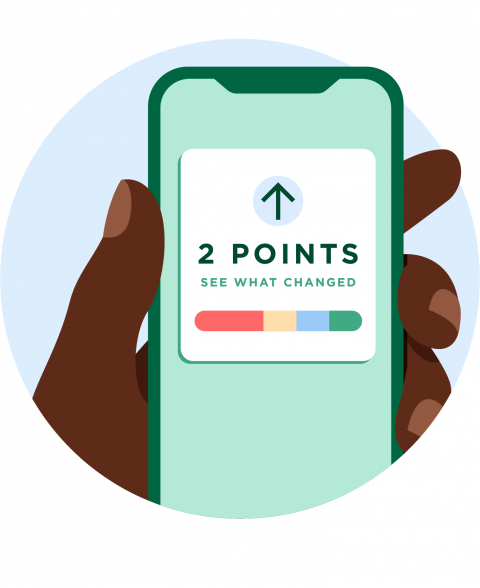600 Credit Score: Is It Good or Bad?

Many, or all, of the products featured on this page are from our advertising partners who compensate us when you take certain actions on our website or click to take an action on their website. However, this does not influence our evaluations. Our opinions are our own. Here is a list of our partners and here's how we make money.
If you have a 600 credit score, things could be worse. After all, scores start at 300.
But things could also be better. Scores lower than 630 fall into the "bad credit score" range, so you might be denied for credit cards and loans, or pay high interest rates for the ones you do receive. A low credit score signals to lenders that you're more likely to default on your debts.
The share of Americans with credit scores below 600 was 15% in April 2023, according to data from credit scoring company FICO. Those scores were for the FICO 8, the most commonly used credit score.
The effect a 600 credit score will have on your financial life depends on whether you’re actively working to restore your credit or have been struggling.

Why you have a 600 credit score
If you’re not sure why you have a low score, check your credit reports. You can get free weekly reports from the three major credit-reporting agencies by using annualcreditreport.com.
If you find mistakes on your reports that are dragging down your score, dispute the errors with the credit bureaus.
If you find negative marks that are accurate, such as missed payments and high credit utilization, you can focus on rebuilding your credit. Or, if you're simply new to credit, you might just need time to build a score.
If your 600 credit score is rising
If you’ve been building your credit and have made it to 600, you might qualify for some products that were out of reach before. Still, you’ll pay more to borrow than you would if your score were higher. Here’s what to expect:
You might now qualify for an apartment, although your chances will be better if you can get your score up. Many landlords have a minimum score they'll accept.
If you want a credit card, consider an alternative: Consumers with credit scores below 630 are typically best off with a secured credit card. These cards require you to make an upfront deposit that serves as collateral in case you don’t pay, and they generally have an annual fee. A retail card is another possibility; some discount stores, in particular, might have lower credit score requirements than banks do.
If you want to buy a car, you won’t get the best rates, but dealerships are accustomed to credit-challenged customers. Chances are you can get a vehicle if you have enough income to make payments. Be patient and compare offers; loans targeted at those with subprime credit can be unreasonably costly.
You can probably qualify for an unsecured personal loan, but the interest rate will be on the higher end of the range. Lenders typically top out rates at 36%.

If your 600 credit score is dropping
If you’re at 600 and struggling not to drop further, your situation is different. Maybe you’ve had a series of late payments or have debts in collections. These are signs that you should take the time to consider other options:
You might have heard that borrowing money and repaying it is a good way to build credit, and that’s true, but not if it leaves you stuck in debt forever. If you want to borrow money because you have bills you can’t cover, credit counseling or bankruptcy may be better solutions.
Apply for credit only if you're relatively confident you’ll be approved. Every application — whether you’re approved or not — can cause a small, temporary drop in your credit score. You don’t want to lose the points without getting the credit, so research the best credit card for your needs before applying. Be aware that lenders may look at more than your credit score, for instance considering your overall debt load.
Practice good credit habits. The best thing you can do for your score is to pay all bills on time and use less than 30% of your credit limits. If you do that and keep accounts open, you'll start restoring your credit score and eventually become eligible for credit products with friendlier terms.
If you have a family member or friend with a good credit score and a long history of good credit use, ask to be added as an authorized user on their credit card.

